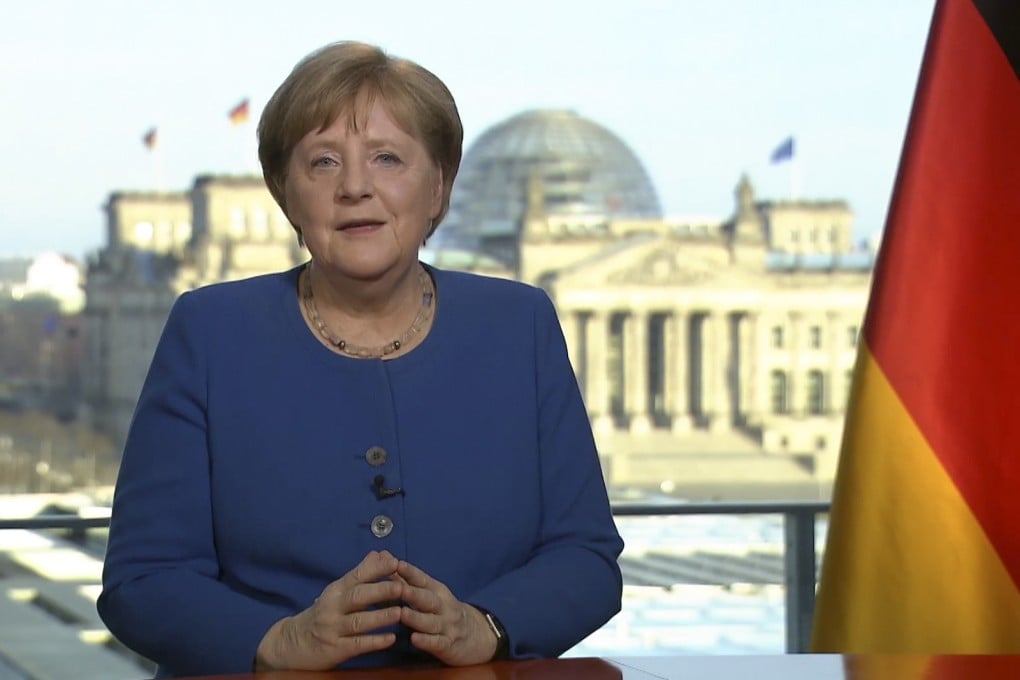Coronavirus: Angela Merkel urges unity in Germany’s ‘biggest challenge since World War II’
- As cases in Europe outstrip those in China, chancellor makes rare television speech to urge citizens to abide by restrictions to contain pandemic’s spread
- Germany could have up to 10 million infections in two to three months if residents don’t follow recommendations, health officials say

Chancellor Angela Merkel used a rare television address to urge Germans to abide by restrictions bringing social life to a standstill, calling the coronavirus pandemic the country’s greatest challenge since World War II.
“This is serious – and you need to take it seriously,” Merkel said the speech delivered to the nation on Wednesday evening. “There has been no such challenge to our country since German reunification – no, since World War II – that relies so much on our joint action in solidarity.”
As the number of confirmed infections in Europe surpass those in China, Merkel addressed the public directly to warn them that they’ll have to make sacrifices to slow the spread of the sickness.
Dispensing with statistics and jargon, Merkel kept her plea to the basics: stay home, wash hands, keep at a distance – and refrain from contacting vulnerable groups such as the elderly.

The guiding principle for all action was to slow rather than stop the infectious pathogen, winning time so as to prevent hospitals and intensive care units from being overwhelmed by those needing help.